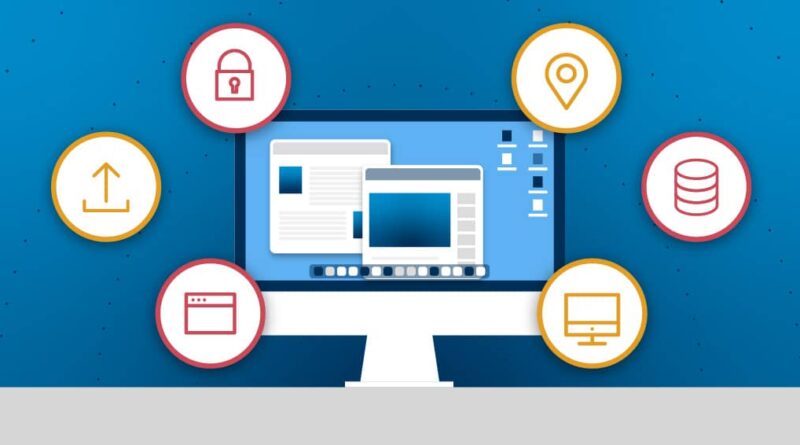What Are the Potential Risks of Widespread Data Privacy Violations?
In today’s digital world, data is more valuable than ever before. Personal information, ranging from social media activity to financial transactions, is continuously collected and analyzed by companies, governments, and other organizations. While this data can be used to improve services, enhance marketing strategies, and drive innovation, it also presents significant risks, particularly when data privacy is violated.
Widespread data privacy violations pose numerous dangers not only to individuals but also to businesses and societies as a whole. The potential consequences of such breaches extend far beyond the immediate financial costs. In this article, we will explore the potential risks of widespread data privacy violations and why safeguarding personal data is more critical than ever.
1. Identity Theft and Financial Fraud
One of the most immediate and serious risks of widespread data privacy violations is identity theft and financial fraud. When personal information, such as names, Social Security numbers, credit card details, and bank account numbers, is exposed, malicious actors can use this data for fraudulent activities.
- Identity Theft: Criminals can impersonate individuals to open bank accounts, apply for loans, or even file tax returns in their name. The result is financial losses, ruined credit scores, and significant time spent trying to resolve the issues. Victims of identity theft may find themselves facing legal and financial challenges for years to come.
- Financial Fraud: Data breaches often expose sensitive financial information, which can be used to commit fraud. Criminals can access bank accounts, steal funds, or make unauthorized transactions. In some cases, widespread financial fraud can result in the collapse of businesses or significant economic losses in affected sectors.
- Phishing and Scams: Data privacy violations can also lead to the rise of phishing scams, where fraudsters use stolen data to craft targeted, believable messages that trick individuals into providing further personal information. These scams can result in financial loss and reputational damage.
2. Loss of Trust in Institutions
Data privacy violations can lead to a significant loss of trust between individuals and the organizations that hold their personal information. Trust is fundamental to the functioning of many businesses, and when consumers feel their data is not being properly protected, they may choose to take their business elsewhere.
- Consumer Confidence: When companies experience data breaches, consumers may feel that their personal information is not secure, leading to a decline in confidence. This can result in decreased sales, customer attrition, and a tarnished reputation that can take years to rebuild.
- Government and Institutional Trust: For governments or public institutions that handle citizens’ data, privacy violations can erode trust in democratic systems and institutions. People may become less willing to share their personal information for purposes like voting, census participation, or access to public services, undermining effective governance.
- Corporate Reputation Damage: When a company’s data security is compromised, it risks irreparable damage to its reputation. Negative media coverage, customer backlash, and legal challenges can make recovery difficult. Companies may also face lawsuits from consumers or partners whose data was affected.
3. Social and Political Manipulation
Widespread data privacy violations can lead to social and political manipulation. Stolen data can be used to target individuals with misleading information, political ads, or propaganda, which can undermine democratic processes and social stability.
- Political Manipulation: Personal data can be used to influence political opinions or voting behavior, particularly through targeted ads and disinformation campaigns. The infamous example of the Cambridge Analytica scandal highlights how data from millions of Facebook users was harvested to create personalized political ads aimed at influencing elections.
- Polarization: The exposure of personal beliefs, opinions, or preferences can also be exploited to deepen social divides. Data from social media, for example, can be used to create echo chambers that reinforce existing biases and encourage political or social polarization.
- Erosion of Democracy: Widespread data violations may also contribute to the erosion of democratic ideals. When individuals’ privacy is violated, it becomes easier for bad actors to manipulate public opinion, skew elections, and ultimately distort the democratic process.
4. Discrimination and Inequality
Another significant risk of data privacy violations is the potential for discrimination and inequality. When sensitive personal data, such as race, gender, health information, or financial status, is exposed or misused, it can lead to discriminatory practices.
- Discrimination in Hiring: Data breaches that expose personal information can lead to discrimination in hiring practices. For example, an employer may be influenced by someone’s age, gender, or race, which can result in unfair hiring decisions.
- Health Discrimination: If healthcare data is compromised, individuals could face discrimination in the form of higher insurance premiums, denial of coverage, or exclusion from medical treatments based on pre-existing conditions.
- Credit and Housing Discrimination: Financial data breaches could expose individuals to discrimination when seeking loans, housing, or credit. Stolen data could influence financial institutions or landlords to make biased decisions, impacting people’s access to essential services.
5. Loss of Personal Autonomy and Privacy
Widespread data privacy violations can lead to a significant loss of personal autonomy and privacy. When personal information is collected, stored, and shared without an individual’s consent, it undermines the right to control one’s own data and can have long-lasting implications for personal freedom.
- Surveillance and Control: Invasive surveillance, both online and offline, is made possible when personal data is compromised. With the rise of facial recognition technology and extensive tracking of online activities, individuals may feel like they are constantly being watched. This surveillance can lead to a sense of powerlessness and hinder personal freedom.
- Loss of Privacy in Daily Life: Widespread breaches can lead to the erosion of privacy in both the physical and digital worlds. Personal data can be used to track individuals’ movements, habits, preferences, and even their personal relationships. This constant exposure can reduce personal autonomy and negatively impact quality of life.
- Unauthorized Data Usage: Companies and third parties can misuse personal data for purposes beyond what the individual has agreed to, such as for targeted advertising, or selling information to other entities. This unauthorized use of personal data can strip individuals of their privacy and autonomy.
6. National Security Threats
Widespread data privacy violations can have significant implications for national security. Sensitive government and corporate data, when exposed, can be used by adversarial nations, organizations, or hackers to destabilize economies, interfere in national elections, or exploit weaknesses in critical infrastructure.
- Cyberattacks: Stolen government or corporate data could lead to cyberattacks that target national security infrastructure, such as power grids, communication networks, or defense systems. These attacks can result in widespread disruptions and even endanger public safety.
- Espionage: Sensitive government and military data could be stolen and used by foreign governments or criminals for espionage purposes. The loss of classified information poses a significant threat to national security and international relations.
- Interference in Elections: Breached data can be exploited to interfere with elections, as seen in the 2016 U.S. presidential election, where personal information was used to create targeted disinformation campaigns that swayed voter behavior and compromised election integrity.
7. Regulatory and Legal Consequences
Data privacy violations can lead to severe regulatory and legal consequences, both for businesses and individuals involved. With the advent of strict data protection laws such as the General Data Protection Regulation (GDPR) in the European Union and the California Consumer Privacy Act (CCPA), organizations that fail to protect user data are facing significant fines and legal actions.
- Fines and Penalties: Companies found guilty of failing to safeguard personal data could face substantial fines, sometimes amounting to millions or even billions of dollars. This can result in financial strain and bankruptcy for smaller businesses, as well as a loss of customer trust.
- Class-Action Lawsuits: Individuals whose data is compromised can file lawsuits against organizations for negligence, leading to costly legal battles. Companies that fail to adhere to data protection laws may face collective lawsuits from affected consumers.
- Regulatory Oversight: Governments may impose stricter regulations on companies found to be responsible for widespread data breaches, forcing them to comply with new data protection standards, invest heavily in cybersecurity, and be subject to ongoing audits.
Conclusion
The risks of widespread data privacy violations are multifaceted and far-reaching, affecting individuals, businesses, and societies as a whole. From identity theft and financial fraud to political manipulation, social inequality, and national security threats, the consequences of compromised personal data are not to be underestimated.
As technology continues to evolve, it is crucial for governments, organizations, and individuals to prioritize data protection and invest in robust cybersecurity practices. By safeguarding personal data and enforcing stringent privacy laws, we can mitigate these risks and ensure that the digital landscape remains secure, fair, and trustworthy for all.

